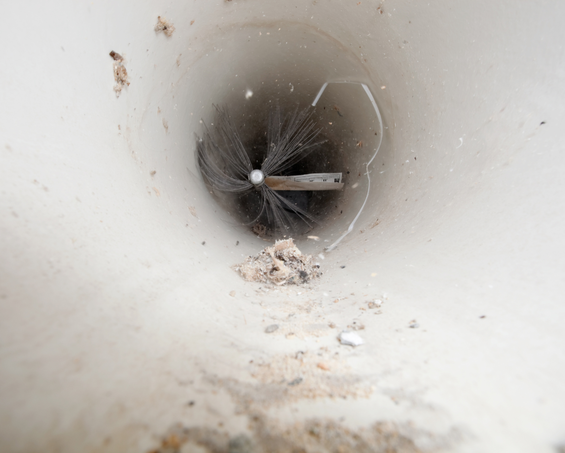|
Indoor air quality is a major concern for homeowners, especially those who suffer from allergies or respiratory conditions. One common issue that can impact air quality is dirty air ducts. Despite regular cleaning and maintenance, many homeowners find that their ducts continue to collect dust, dirt, and other debris. In this blog, we'll explore why ducts in homes get so dirty and what you can do to improve the air quality in your home. The Reasons Over time, there are several reasons why your ducts may become dirty. The most common culprit is the accumulation of dust due to the imperfections of air filters. Additionally, unfiltered air that is drawn into the return air ducting can lead to dirt and dust buildup in your HVAC system and ducts, ultimately affecting the air quality in your home. When renovating a home, it is also important to be aware of the potential for dirty ducts. This is because construction work can create a lot of dust and debris that can easily get sucked into your HVAC system and circulate throughout your home. Even if you take steps to contain the dust, it is hard to completely prevent it from getting into your ductwork. Smoking in the house can lead to dirty ducts due to the accumulation of tobacco smoke and other harmful substances in the air. As the smoke travels through the heating and cooling system, it can leave behind residue and buildup in the ductwork. Over time, this buildup can lead to reduced airflow, decreased efficiency, and an increased risk of respiratory issues for those living in the home. It is also important to note that having pets will contribute to having dirty ducts due to the shedding of fur, dander, and dust. These particles can accumulate in the air ducts and cause blockages, reducing the efficiency of the HVAC system and potentially leading to poor air quality. Pets can also bring in dirt and debris from outside, which can further contribute to the buildup of contaminants in the ducts. The Risks of Having Dirty Ducts Dirty air ducts can pose several risks to the health and well-being of individuals. One of the most significant risks is the potential for increased exposure to allergens and irritants such as dust, pollen, and mould. These contaminants can trigger respiratory issues, particularly for those with asthma or allergies. Additionally, dirty air ducts can potentially lead to the growth of harmful bacteria and viruses, putting occupants at risk of illness. The accumulation of dust and debris in air ducts can also reduce the efficiency of HVAC systems, leading to increased energy costs and potential system failure. Finally, neglected air ducts can become a fire hazard if flammable materials such as dust and debris are not cleaned out regularly. Maintenance Is Key Regular maintenance and cleaning of the air ducts is vital for the health, safety and comfort of all that live in the home. For one, it improves the indoor air quality by removing dust, dirt, and other harmful particles that can cause allergies or respiratory issues. It also improves the efficiency of your HVAC system, which can lower your energy bills and extend the lifespan of the equipment. Finally, regular maintenance can prevent costly repairs and replacements down the line. Overall, investing in air duct maintenance is a smart choice for both your health and your wallet.
In conclusion, the accumulation of dirt and debris in your home's ductwork is a common issue that can lead to poor indoor air quality and potential health problems as we have described above. While regular cleaning and maintenance can help reduce the buildup of debris, it is often best to entrust this task to a professional duct cleaning company. These experts have the tools and expertise to thoroughly clean your ductwork, ensuring that your home's air remains fresh and healthy. So, if you are concerned about the cleanliness of your ducts, don't hesitate to contact a professional duct cleaning service today. Comments are closed.
|
AuthorDuct Cleaning Ottawa Pro offers you the best advice about duct cleaning Archives
June 2024
Categories |
Duct Cleaning Ottawa Pro
17 Spadina Avenue, K1Y2B8, Ottawa
(343) 805-0192
17 Spadina Avenue, K1Y2B8, Ottawa
(343) 805-0192
|
Our Cleaning Services:
Air Duct Cleaning services Dryer Vent Cleaning services Furnace Cleaning services HRV system cleaning services Bathroom exhaust cleaning services Wall Mounted Heat Pump cleaning service Air Exchanger Cleaning service Coil cleaning services Carpet and Upholstery Cleaning services Area Rug Cleaning services Commercial Duct cleaning services Commercial Dryer Vent Cleaning services Commercial Carpet and Rug cleaning services |


 RSS Feed
RSS Feed